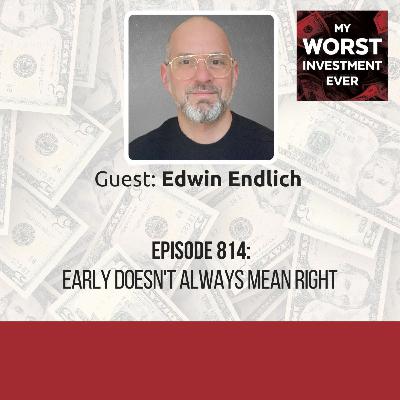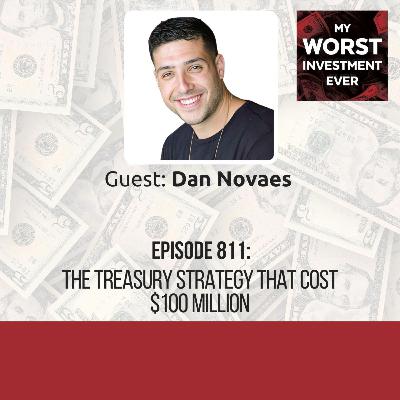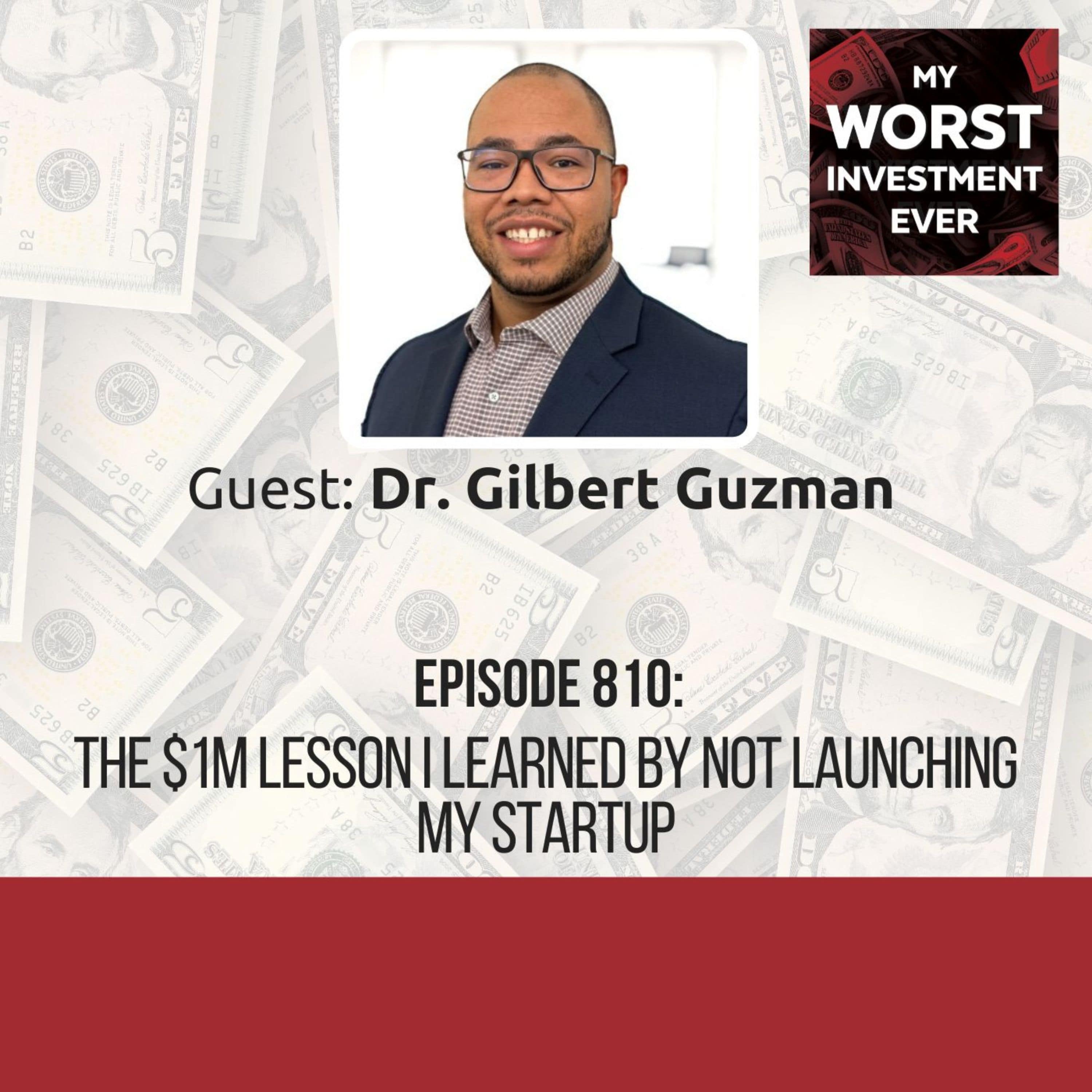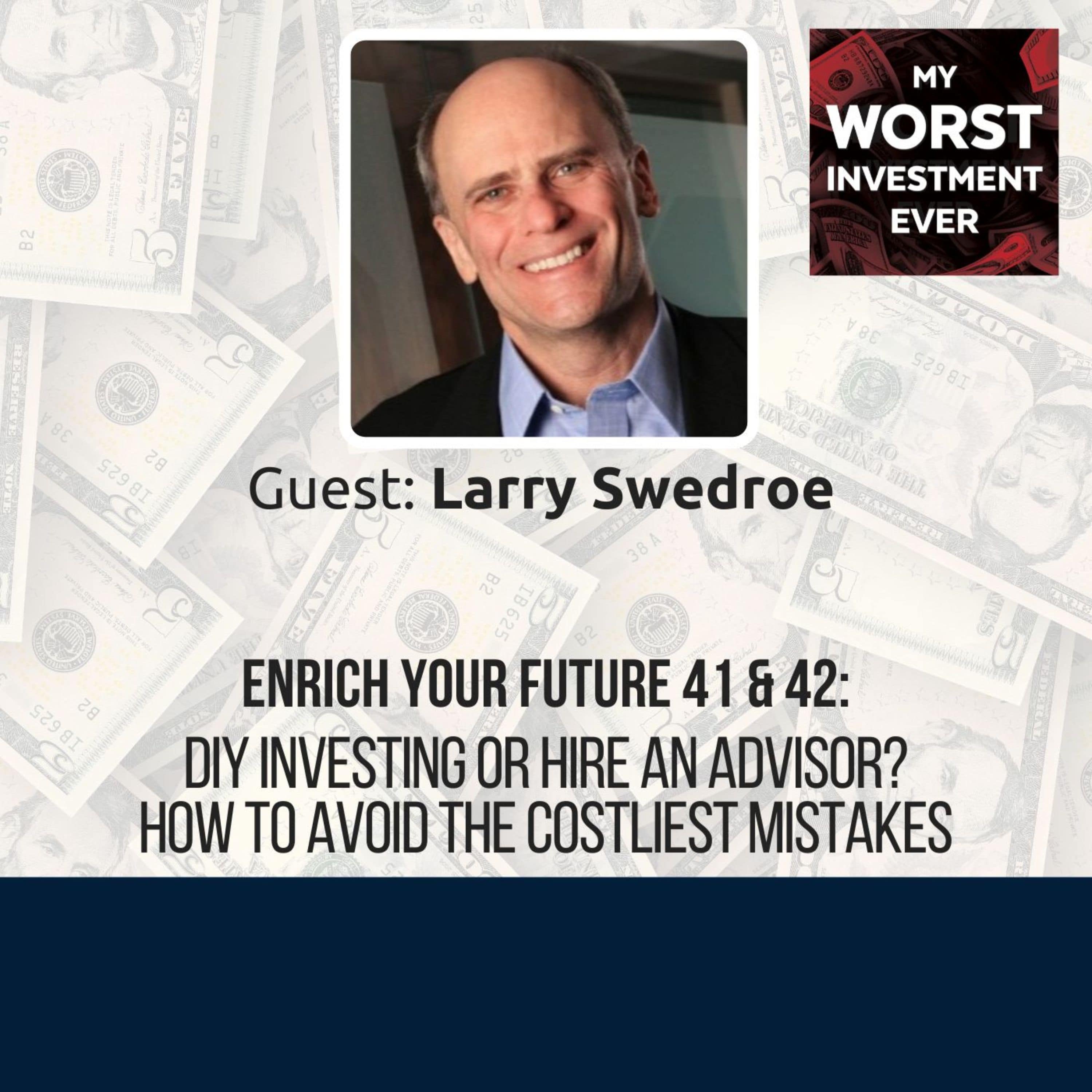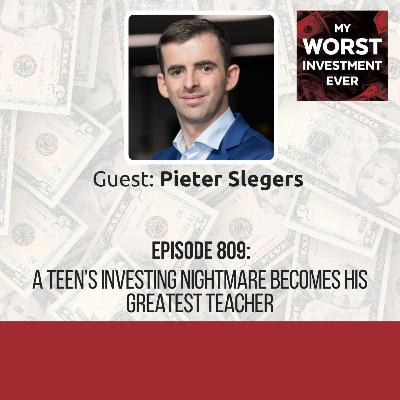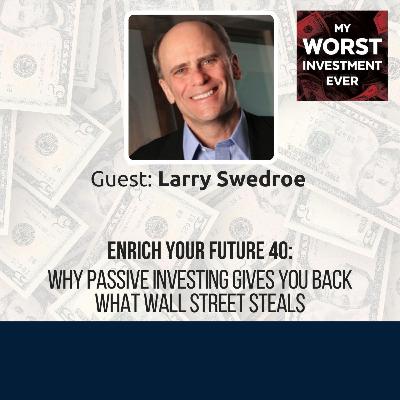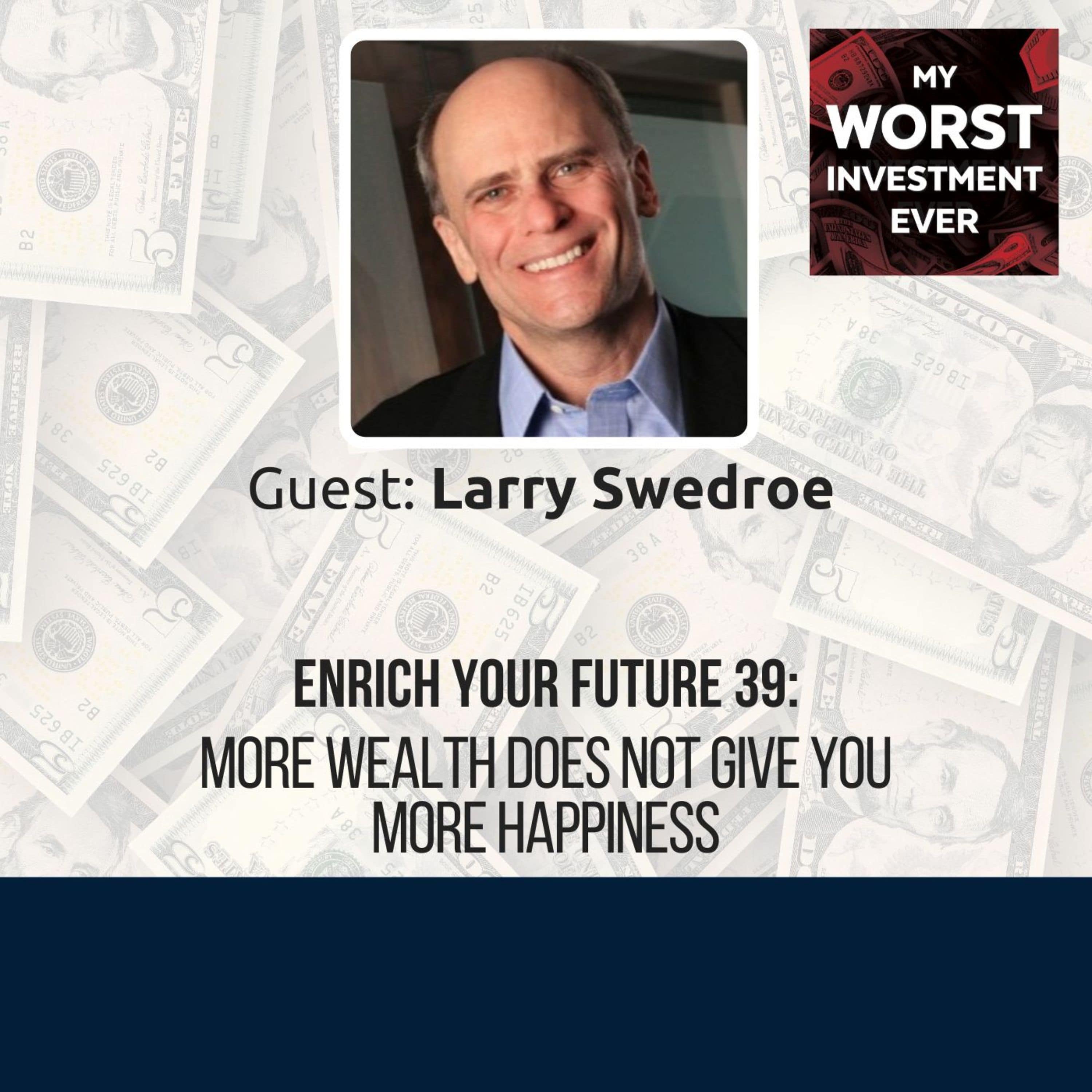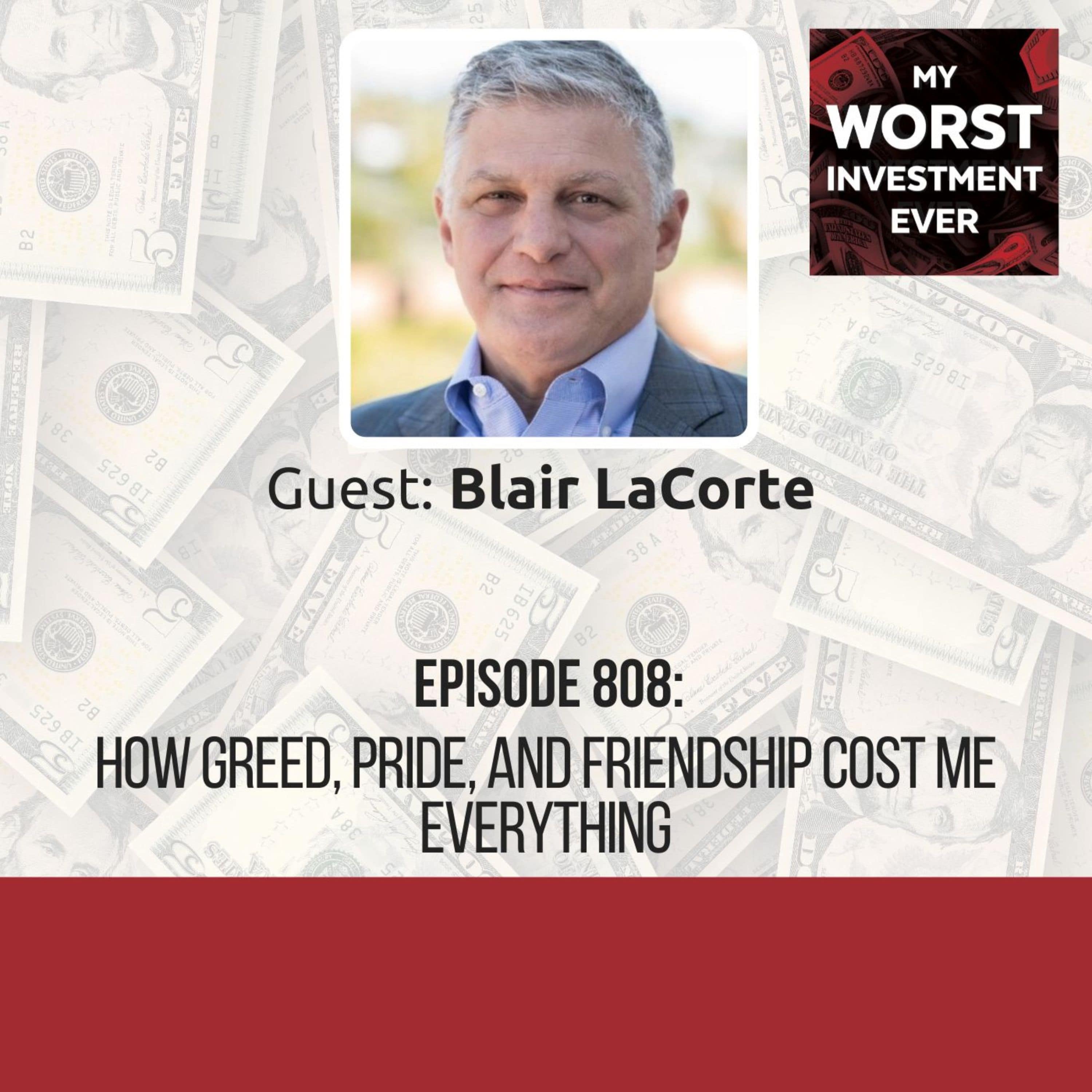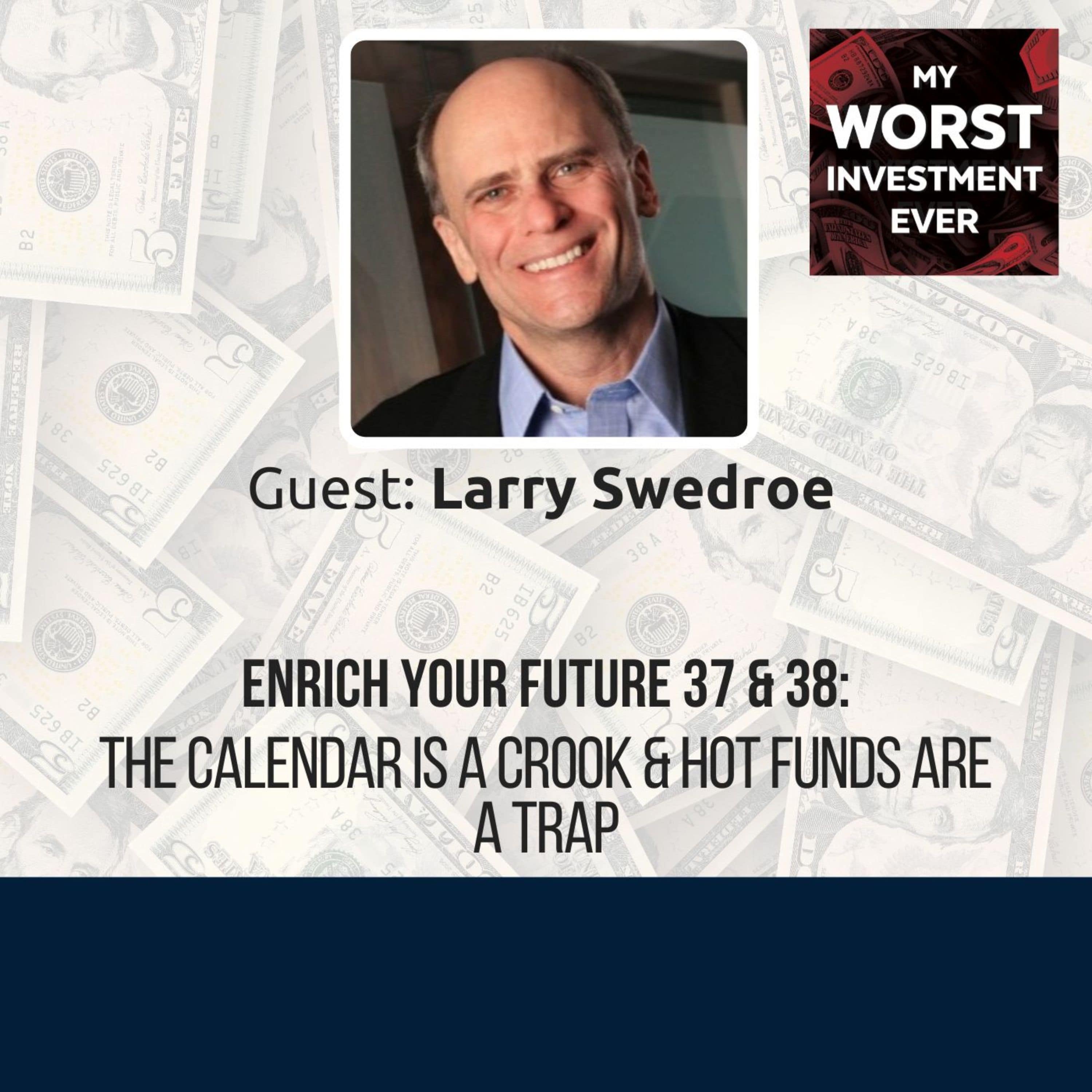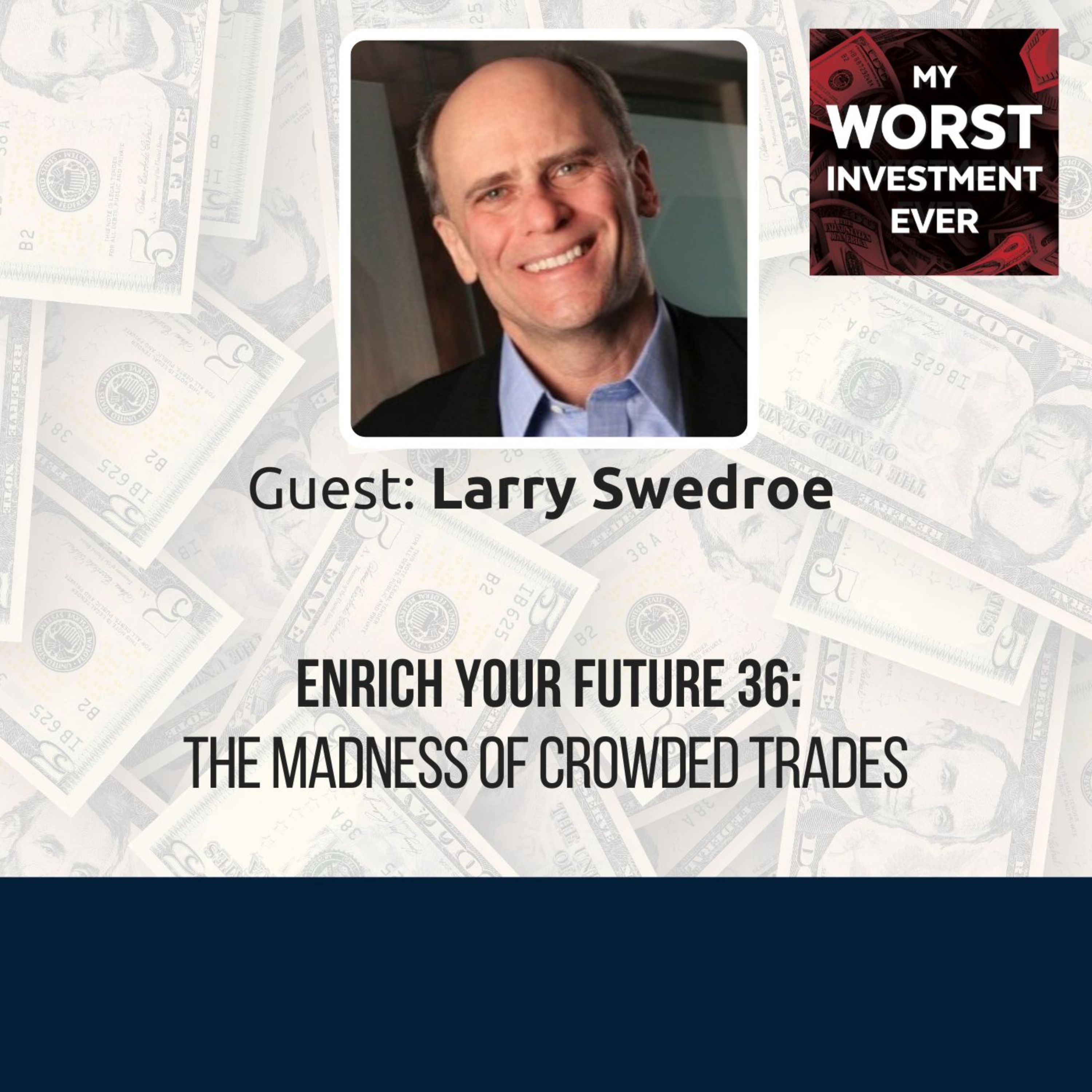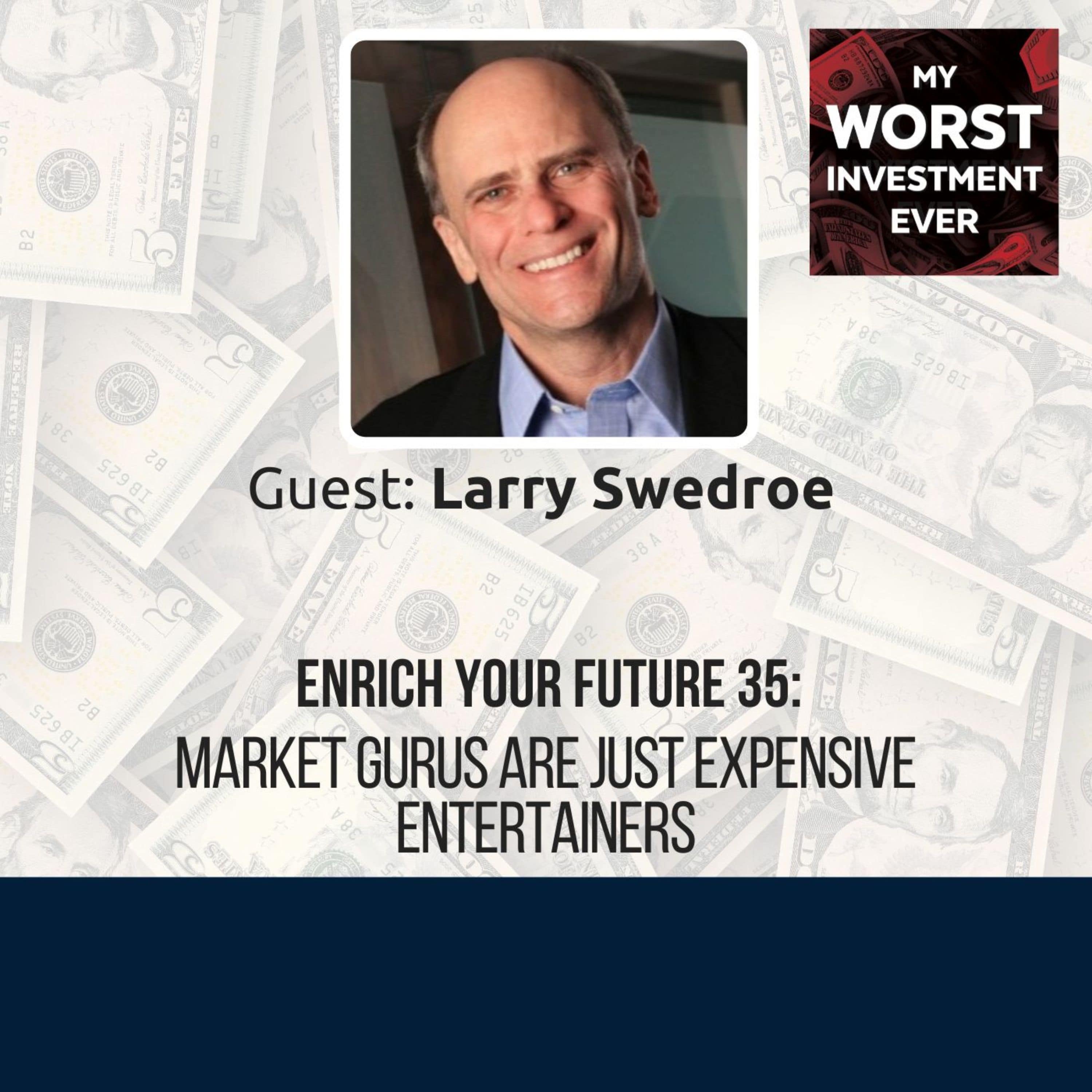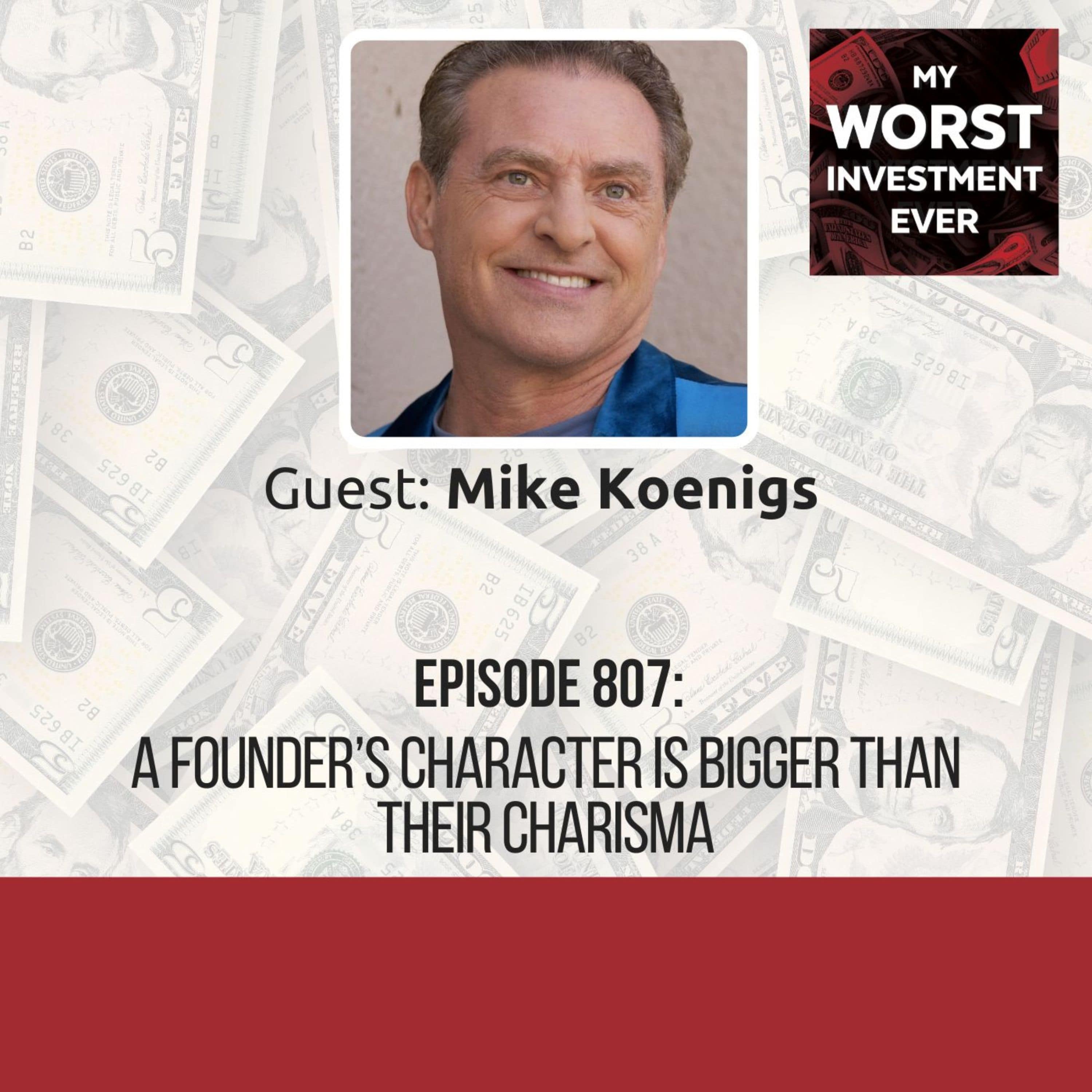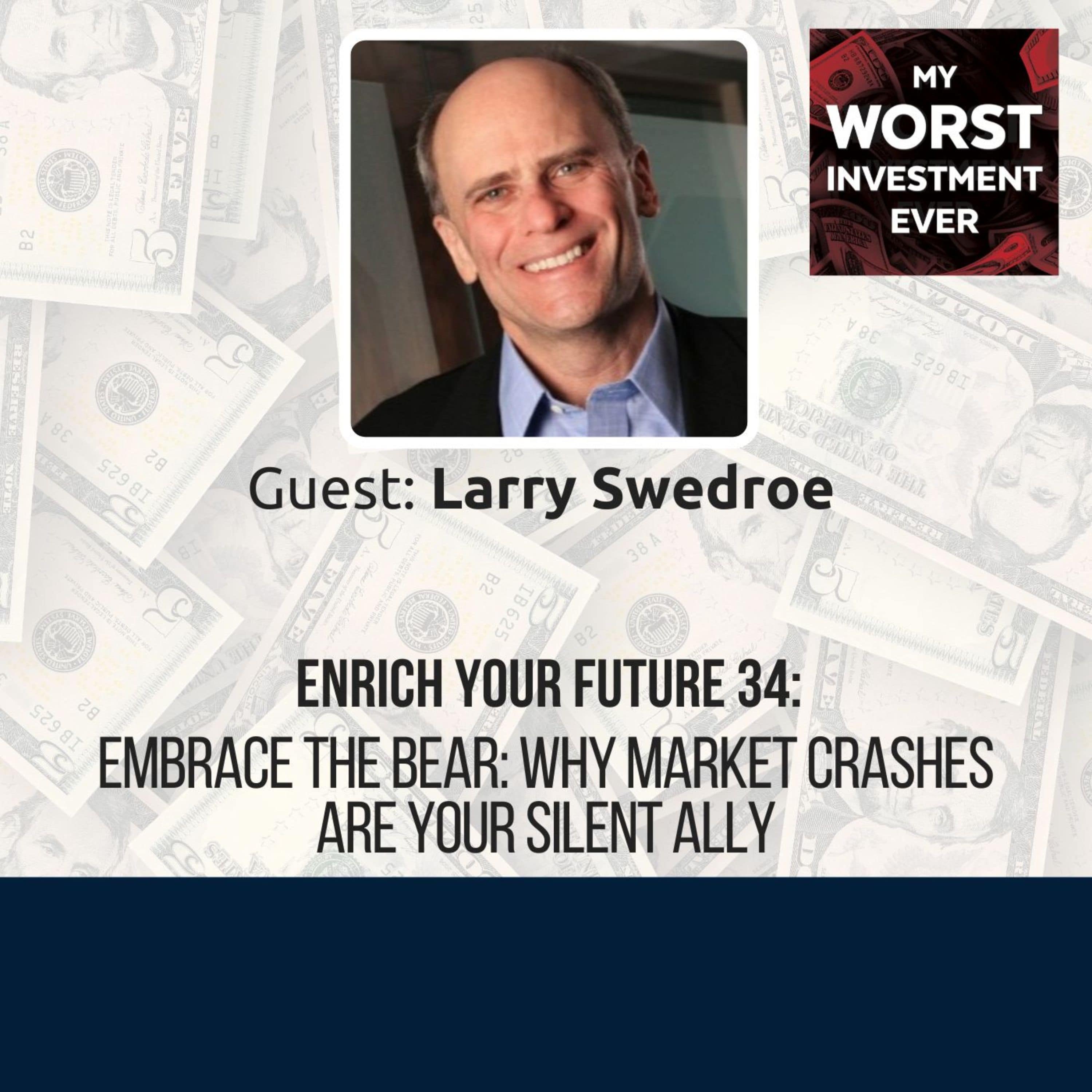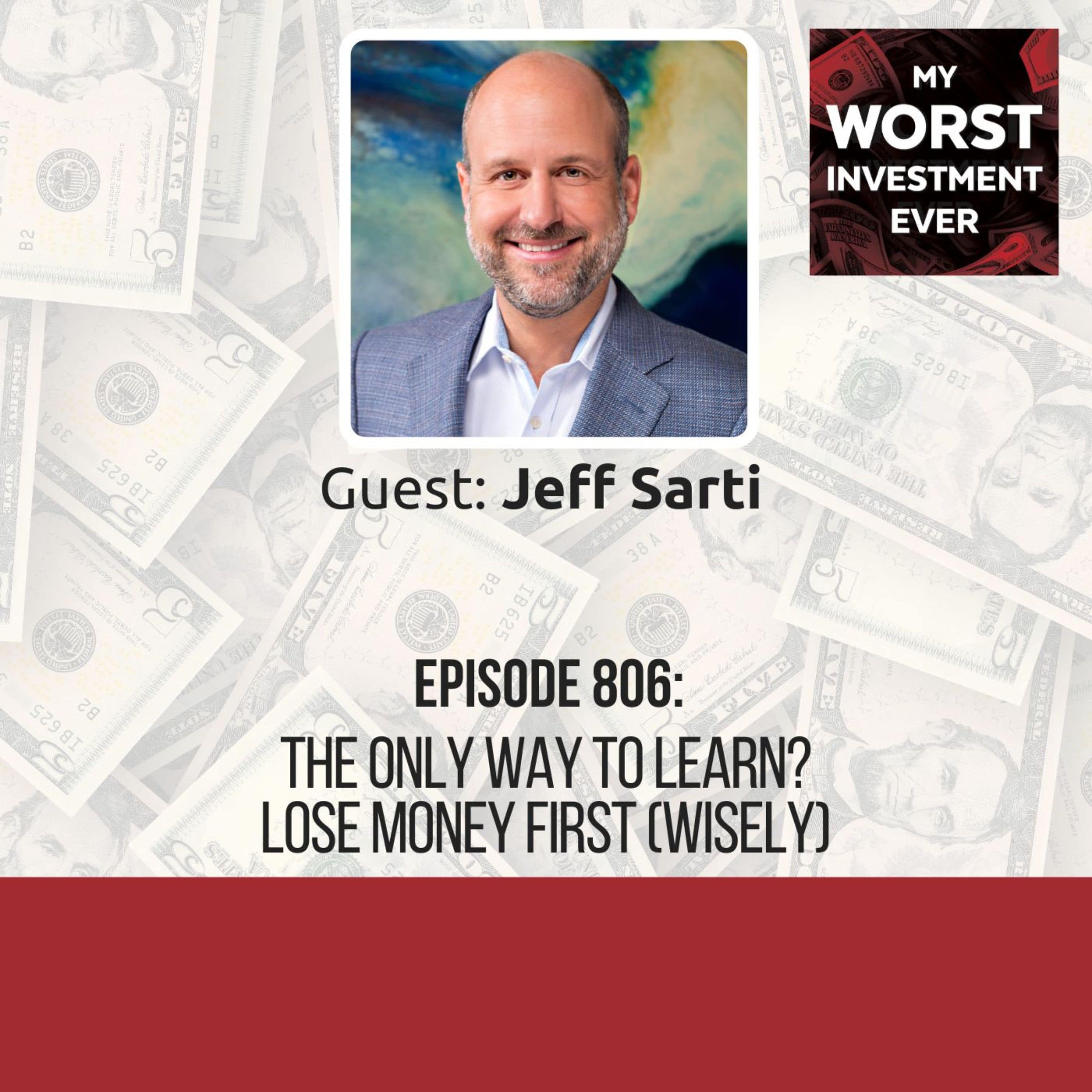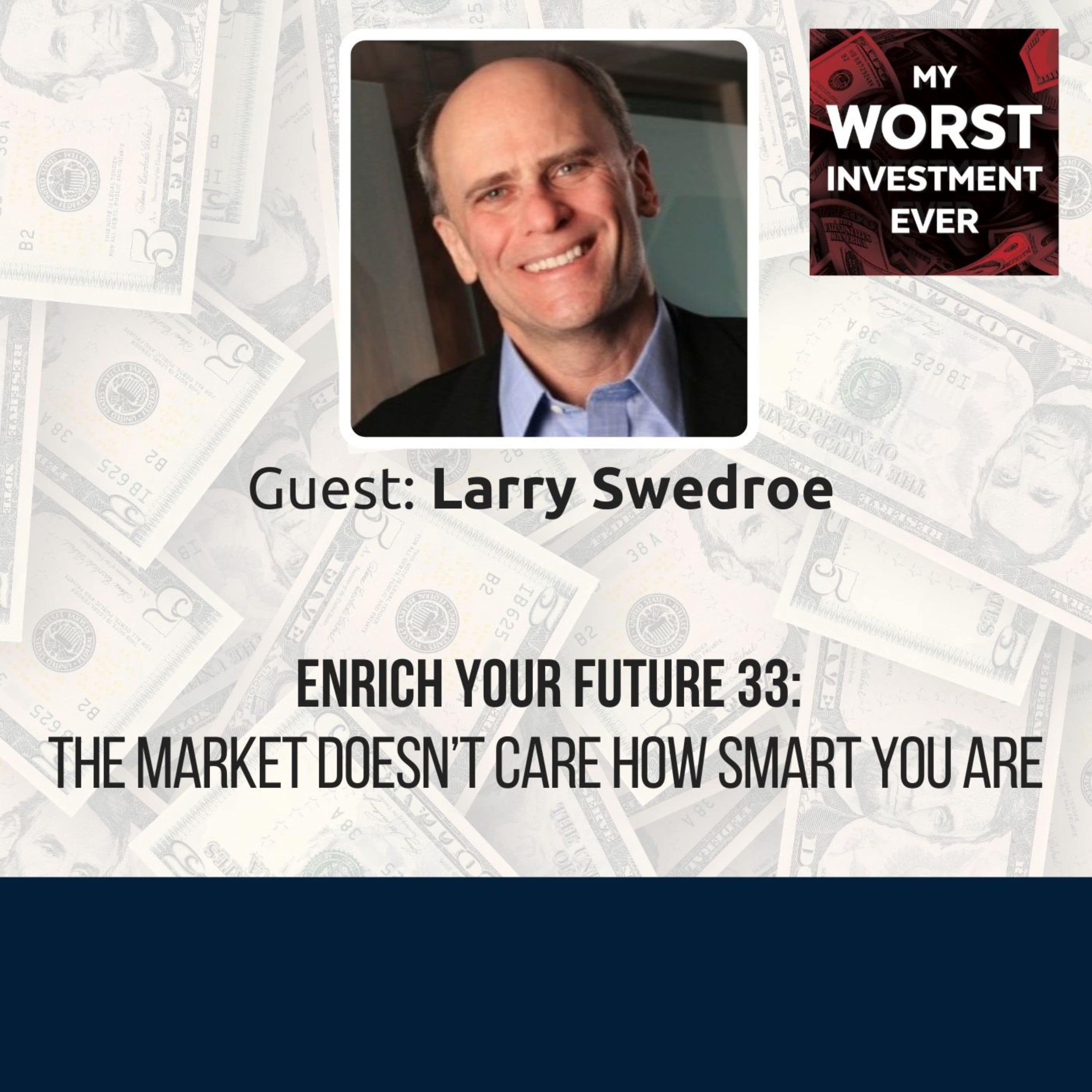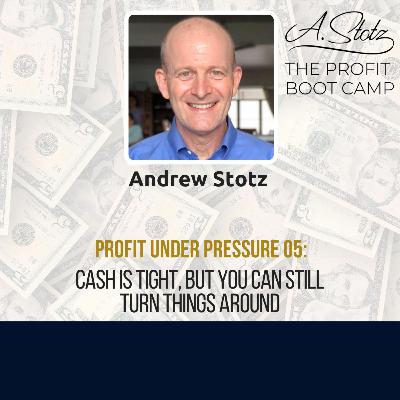Enrich Your Future 14: Stocks Are Risky No Matter How Long the Horizon
Description
In this episode of Enrich Your Future, Andrew and Larry Swedroe discuss Larry’s new book, Enrich Your Future: The Keys to Successful Investing. In this series, they discuss Chapter 14: Stocks Are Risky No Matter How Long the Horizon.
LEARNING: Stocks are risky no matter the length of your investment horizon
“Investors should never take more risk than is appropriate to their personal situation.”
Larry Swedroe
In this episode of Enrich Your Future, Andrew and Larry Swedroe discuss Larry’s new book, Enrich Your Future: The Keys to Successful Investing. The book is a collection of stories that Larry has developed over 30 years as the head of financial and economic research at Buckingham Wealth Partners to help investors. You can learn more about Larry’s Worst Investment Ever story on Ep645: Beware of Idiosyncratic Risks.
Larry deeply understands the world of academic research and investing, especially risk. Today, Andrew and Larry discuss Chapter 14: Stocks Are Risky No Matter How Long the Horizon.
Chapter 14: Stocks Are Risky No Matter How Long the Horizon
In this chapter, Larry illustrates why stocks are risky no matter how long the investment horizon is.
According to Larry, the claim that stocks are not risky if one’s horizon is long is based on just one set of data (the U.S.) for one period (albeit a long one). It could be that the results were due to a ‘lucky draw.’ In other words, if stocks are only risky when one’s horizon is short, we should see evidence of this in other markets. Unfortunately, investors in many different markets did not receive the kind of returns U.S. investors did.
Historical examples of stock market risks
Larry presents evidence from several markets, reinforcing the historical data that stocks are also risky over the long term.
First, Larry looks at U.S. equity returns 20 years back from 1949. The S&P 500 Index had returned 3.1 percent per year, underperforming long-term government bonds by 0.8 percent per year—so much for the argument that stocks always beat bonds if the horizon is 20 years or more.
In 1900, the Egyptian stock market was the fifth largest in the world, attracting significant capital inflows from global investors. However, those investors are still waiting for the return ON their capital, let alone the return OF their capital.
In the 1880s, two promising countries in the Western Hemisphere received capital inflows from Europe for development purposes: the U.S. and Argentina. One group of long-term investors was well rewarded, while the other was not.
Finally, in December 1989, the Nikkei index reached an intraday all-time high of 38,957. From 1990 through 2022, Japanese large-cap stocks (MSCI/Nomura) returned just 0.2 percent a year—a total return of just 6 percent. Considering cumulative inflation over the period was about 15 percent, Japanese large-cap stocks lost about 9 percent in real terms over the 33 years.
Taking the risk of equity ownership
Larry notes that the most crucial lesson investors need to learn from this evidence is that while it is true that the longer your investment horizon, the greater your ability to take the risk of investing in stocks (because you have a greater ability to wait out a bear market without having to sell to raise capital), stocks are risky no matter the length of your investment horizon.
In fact, that is precisely why U.S. stocks have generally (but not always) provided such great returns over the long term. Investors know that stocks are always risky, and thus, they price stocks in a manner that provides them with an expected (but not guaranteed) risk premium.
In other words, stocks must be priced low enough to attract investors with a risk premium large enough to compensate them for taking the risk of equity ownership. Because the majority of investors are risk-averse, the equity risk premium has historically been large.
Things that never happened before do happen
Larry warns that investors should never take more risk than is appropriate to their personal situation. It is also important to remember these words of caution from Nassim Nicholas Taleb: “History teaches us that things that never happened before do happen.” With that in mind, you will be well served if you never treat the highly unlikely (a very long or permanent bear market) as impossible.
In addition, investors should diversify their portfolios against risks that can show up and not have all of their assets in any one country or asset class. This is because any of them can have very long periods of poor performance. He insists that having long periods of poor performance is not a reason to avoid an asset class. It’s a reason why investors should diversify.
Further reading
- Terry Burnham, Mean Markets and Lizard Brains (Wiley 2005).
- Nassim Nicholas Taleb, Fooled by Randomness (Random House, 2005).
Did you miss out on the previous chapters? Check them out:
- Enrich Your Future 01: The Determinants of the Risk and Return of Stocks and Bonds
- Enrich Your Future 02: How Markets Set Prices
- Enrich Your Future 03: Persistence of Performance: Athletes Versus Investment Managers
- Enrich Your Future 04: Why Is Persistent Outperformance So Hard to Find?
- Enrich Your Future 05: Great Companies Do Not Make High-Return Investments
- Enrich Your Future 06: Market Efficiency and the Case of Pete Rose
- Enrich Your Future 07: The Value of Security Analysis
- Enrich Your Future 08: High Economic Growth Doesn’t Always Mean High Stock Market Return
- Enrich Your Future 09: The Fed Model and the Money Illusion
- Enrich Your Future 10: You Won’t Beat the Market Even the Best Funds Don’t
- Enrich Your Future 11: Long-Term Outperformance Is Not Always Evidence of Skill
- Enrich Your Future 12: When Confronted With a Loser’s Game Do Not Play
- Enrich Your Future 13: Past Performance Is Not a Predictor of Future Performance
About Larry Swedroe
Larry Swedroe was head of financial and economic research at Buckingham Wealth Partners. Since joining the firm in 1996, Larry has spent his time, talent, and energy educating investors on the benefits of evidence-based investing with an enthusiasm few can match.
Larry was among the first authors to publish a book that explained the science of investing in layman’s terms, “The Only Guide to a Winning Investment Strategy You’ll Ever Need.” He has authored or co-authored 18 books.
Larry’s dedication to helping others has made him a sought-after national speaker. He has made appearances on national television on various outlets.
<


